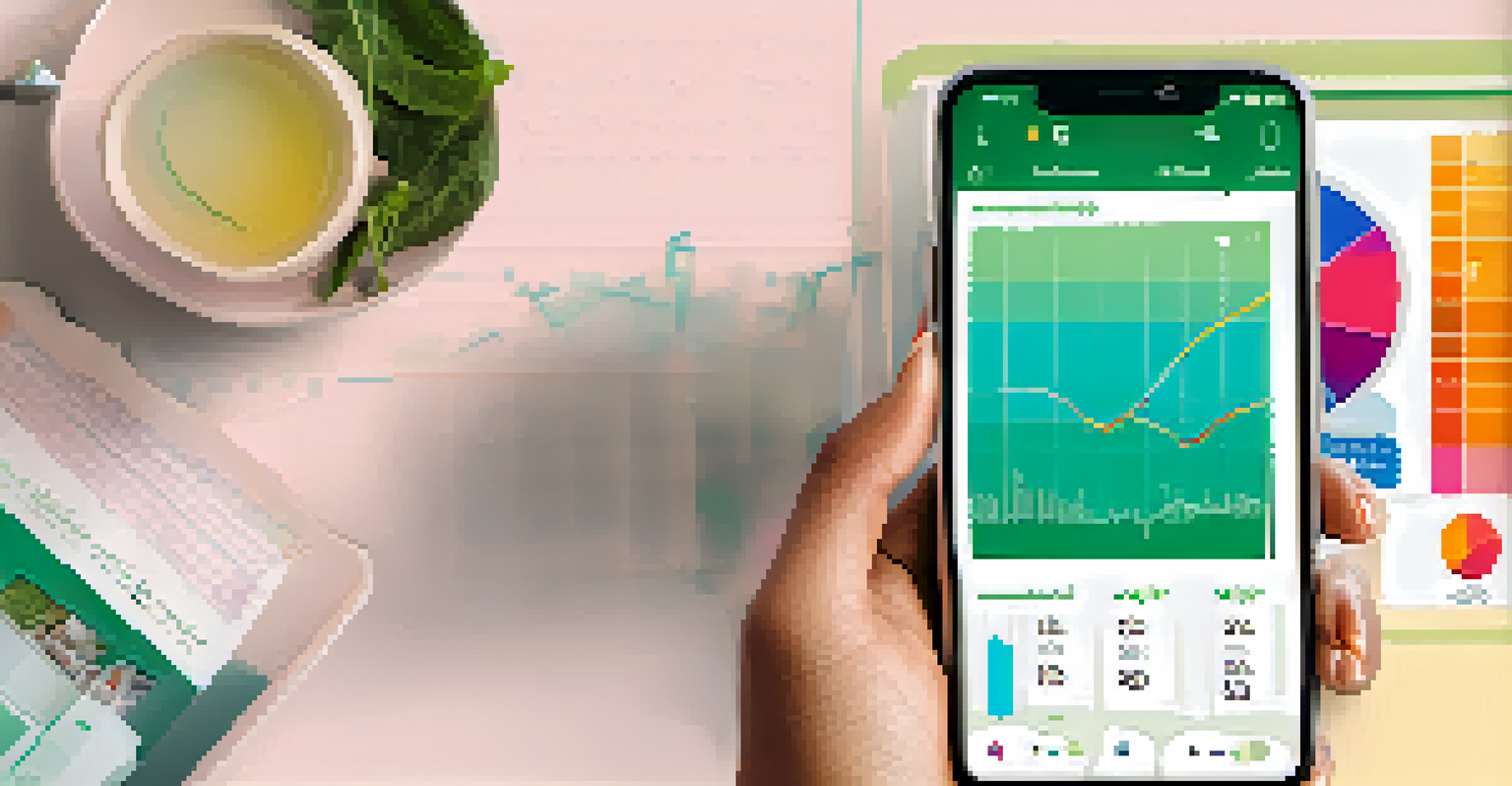Health Tech for Women: Apps for Reproductive Health

Understanding the Importance of Women's Reproductive Health
Women's reproductive health is a crucial aspect of overall well-being, encompassing everything from menstrual cycles to pregnancy. Acknowledging its significance can empower women to take charge of their health. Moreover, informed choices can lead to better health outcomes and greater confidence in their bodies.
Women's health is a matter of societal health. When women thrive, families thrive, and communities thrive.
Traditionally, discussions around reproductive health have been limited or stigmatized, often leaving women feeling isolated. Health tech aims to break these barriers by providing accessible information and resources at the touch of a button. This shift is vital in creating a supportive environment for women to explore their health needs openly.
With the rise of mobile technology, women now have the opportunity to track their reproductive health in real-time. This shift not only promotes awareness but also encourages proactive health management, which can be a game-changer in their reproductive journeys.
Key Features to Look for in Reproductive Health Apps
When choosing a reproductive health app, it's essential to consider features that prioritize user experience and data privacy. Look for apps that offer customizable tracking options, enabling you to log menstrual cycles, symptoms, and moods. This personalization can significantly enhance the app's effectiveness for individual users.

Data security is another crucial aspect. Choose apps that emphasize encryption and provide clear privacy policies. After all, your health information is sensitive, and you deserve assurance that your data remains confidential and secure.
Empowerment through Health Tech
Women can take charge of their reproductive health with accessible information and resources provided by health tech.
Additionally, educational resources and community support can greatly enrich the app experience. Many apps now include articles, videos, and forums that foster a sense of belonging and provide valuable insights into women's health issues.
Popular Apps for Menstrual Cycle Tracking
One of the most popular apps for menstrual cycle tracking is Clue. With its sleek design and user-friendly interface, Clue allows users to log their cycles and symptoms effortlessly. Its algorithm also predicts fertile windows, offering valuable insights for those trying to conceive or avoid pregnancy.
The best way to take care of your health is to take care of your mind, because mental health and physical health are intertwined.
Another great option is Flo, which not only tracks menstrual cycles but also provides personalized health insights and reminders. Flo includes a community feature where users can connect and share experiences, making it a supportive platform for women navigating similar challenges.
For those who enjoy a bit of gamification, Period Tracker by GP Apps is a fun choice. Users can earn rewards for logging their cycles consistently, making health management feel a little less like a chore and more like an engaging challenge.
Apps Supporting Pregnancy and Fertility
When it comes to pregnancy and fertility, apps like Ovia Fertility provide comprehensive tools for tracking ovulation and managing fertility. Ovia's unique feature allows users to input health data and receive personalized fertility predictions, which is especially helpful for those trying to conceive.
Pregnancy apps like What to Expect are invaluable for expectant mothers, offering week-by-week insights into fetal development, nutrition tips, and community support. These apps also include features for tracking appointments and milestones, ensuring that mothers-to-be stay organized during this exciting time.
Privacy is Key in Health Apps
Choosing reproductive health apps that prioritize user experience and data security is essential for protecting sensitive information.
For women undergoing IVF or other fertility treatments, apps like Fertility Friend can be incredibly supportive. These apps help users monitor their cycle changes, medications, and emotional wellbeing, providing a sense of control during a complex and often stressful process.
Mental Health and Wellness Apps for Women
Reproductive health isn't just about physical well-being; mental health plays a significant role too. Apps like Headspace offer guided meditations and mindfulness exercises tailored for women, helping them manage stress and anxiety related to reproductive health.
Additionally, apps like Moodfit allow users to track their moods alongside menstrual cycles, providing insights into how hormonal changes may affect mental health. By recognizing these patterns, women can better prepare for challenging emotional days.
Having a holistic approach is essential. Integrating mental health support into reproductive health apps can empower women to prioritize both their emotional and physical well-being, creating a more comprehensive health management experience.
The Role of Community Support in Health Apps
Community support is a vital component of health tech for women. Many apps include forums and chat features that allow users to connect with others facing similar health challenges. This sense of community can be incredibly reassuring, reminding women that they are not alone in their journeys.
For instance, apps like Peanut focus on connecting women through shared experiences, whether they are trying to conceive, pregnant, or new mothers. Such connections can lead to friendships and support networks that enhance the overall app experience.
Community Support Enhances Wellness
Health apps that incorporate community features foster connections among women, providing valuable support and shared experiences.
Moreover, these communities often share tips, personal stories, and resources, enriching the knowledge base available to all users. This collaborative approach can empower women to make informed health decisions with the support of others.
Future Trends in Women's Health Tech
As technology continues to evolve, the future of women's health tech looks promising. Emerging trends include the integration of artificial intelligence (AI) to provide personalized health insights based on user data. This could revolutionize how women track their health and receive tailored advice.
Wearable technology is another exciting development, with devices that can monitor hormonal changes and provide real-time feedback. This advancement could lead to more proactive health management, allowing women to respond to their bodies' needs as they arise.

Lastly, the ongoing focus on inclusivity in health tech will ensure that diverse experiences and health needs are represented. By prioritizing accessibility, developers can create apps that cater to women from various backgrounds and health conditions, ultimately fostering better health outcomes for all.